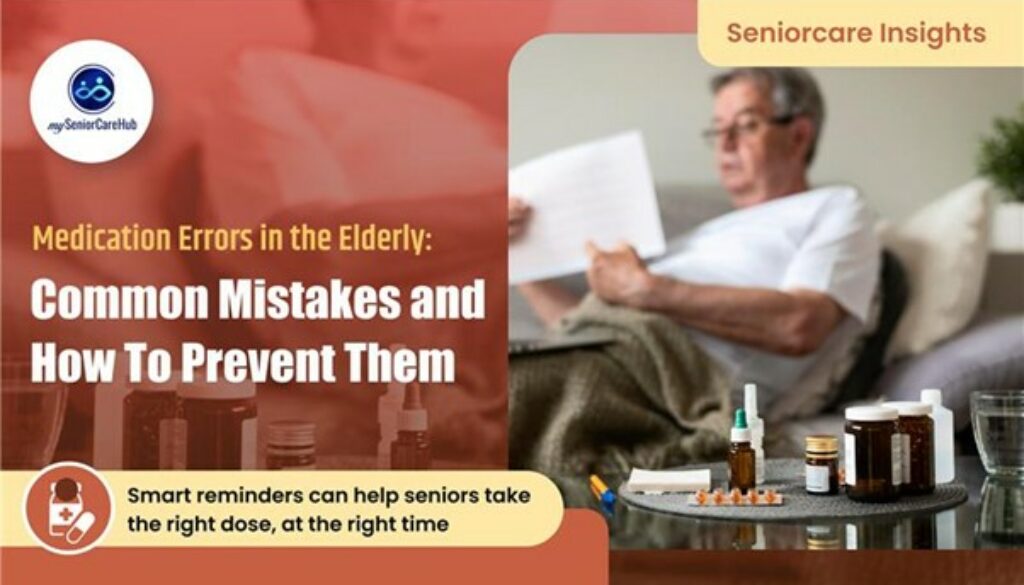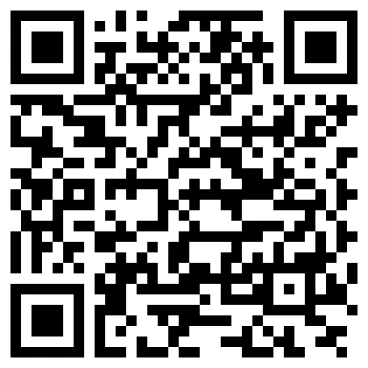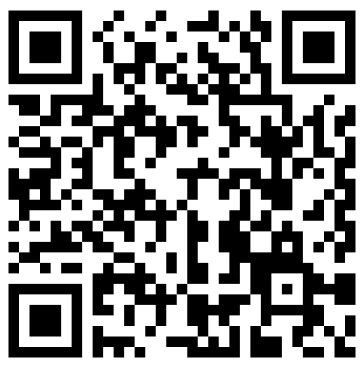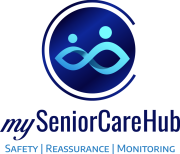Common Medication Errors in the Elderly and How to Avoid Them
Medication Errors are More Dangerous than we Realize
For many older adults, taking medicines is a part of everyday life. Whether it’s a tablet for blood pressure, a capsule for diabetes, or drops for glaucoma, these small doses keep chronic conditions under control. But managing multiple medications can be tricky.
A missed morning dose, a mix-up between two similar-looking pills, or taking medicine on an empty stomach instead of after eating—these may appear to be minor mistakes, but for older adults, they can result in significant health complications. Issues like sudden falls, dizziness, confusion, or dangerous drug interactions are often traced back to simple medication errors.
The World Health Organization states that unsafe medication practices and errors are among the main causes of harm and preventable injury in healthcare systems worldwide. Seniors, especially those managing more than one illness, are among the most affected. The good news? With the correct information, prompt assistance, and intelligent systems in place to direct daily activities, most of these errors can be avoided.
Why Are Seniors More Vulnerable to Medication Errors?
In addition to wisdom, aging also brings about changes, particularly in the way our bodies react to medications. The liver and kidneys, which aid in the body’s drug removal, may not function as well as they once did. This means medicines can stay longer in the system, increasing the risk of side effects or toxicity if not taken correctly.
Add to that the reality that most seniors take five or more medications daily—a condition known as polypharmacy. Managing so many pills, often at different times of day and with specific instructions (before food, after food, with water, avoid sunlight), can be confusing even for someone with a good memory. For seniors dealing with early-stage dementia, mild cognitive impairment, or simple forgetfulness, the risk of mistakes multiplies.
Common challenges include in Senior Problems:
- Reduced Vision: difficult to read small labels or distinguish similar packaging
- Hearing Loss: missing verbal instructions from doctors or pharmacists
- Swallowing difficulties: frequent with large tablets or certain capsule types
- Living alone: no one around to cross-check doses or notice changes in behaviour
A study published in the Indian Journal of Pharmacology found that over 30% of older adults had made at least one medication error in the past six months, with forgetfulness being the leading cause.
These are not merely figures; they represent actual difficulties that millions of elderly people deal with daily. But the good news is, with awareness and support, these problems can be addressed effectively.
Top 5 Medication Mistakes Seniors Commonly Make
Even with the best intentions, it’s easy to slip up when managing multiple medications. Here are the top five medication mistakes seniors tend to make and why they matter:
1. Missing a Dose or Taking It Late
Whether it’s due to forgetfulness, confusion about timing, or simply being busy with other things, missing a dose is one of the most common errors. For chronic conditions like diabetes, hypertension, or thyroid disorders, skipping even one dose can disrupt the body’s balance and lead to complications.
2. Taking the Wrong Medicine or the Wrong Dose
It is simple to mix up medications due to similar-sounding names and packaging, especially when there are several pills involved. Taking double the dose by mistake or taking a tablet meant for the evening in the morning can lead to side effects like dizziness, nausea, or dangerously low blood pressure.
3. Not Following Food Instructions
Some medicines are meant to be taken with food, others, on an empty stomach. Not knowing the difference can reduce how well the medicine works—or make it harsher on the stomach. For example, painkillers or steroids without food can irritate the stomach lining, while thyroid medications may not work effectively if taken after eating.
4. Stopping Medicines Without Telling the Doctor
Many seniors stop taking medicines once they “feel better” or because of side effects like tiredness or swelling. For instance, stopping blood thinners can increase the risk of stroke, and stopping psychiatric medications suddenly can cause mood swings or withdrawal.
5. Using Expired or Leftover Medicines
It’s common to hold onto old medicines “just in case,” but using expired drugs can be ineffective or even harmful. The potency decreases over time, and in some cases (like liquid antibiotics), they can become unsafe. Also, sharing medicines with a friend or using leftover prescriptions without checking with a doctor can be dangerous.
Tip: If any pill looks different than usual (colour, shape, markings), it’s worth double-checking with a pharmacist before taking it.
Did you know? Medication-related problems are one of the top reasons seniors lose their ability to live independently.
The Foundation of Smart Care Is Support, With a mySeniorCareHub App – Best Medication App
Preventing medication errors doesn’t have to be overwhelming. In fact, with the right support system, it’s completely manageable. Whether they are family members or qualified professionals, caregivers are essential in helping seniors with complicated medication schedules, providing reminders, reading out directions, or even setting up weekly pillboxes. But human memory isn’t perfect, especially when life gets busy.
That’s where digital health tools like mySeniorCareHub step in. This all-in-one app is designed specifically for the needs of older adults and their caregivers. It sends timely medication reminders, tracks whether doses were taken and even alerts caregivers if a pill is missed. Additionally, it offers personalized health tracking, including blood pressure and blood sugar levels, which facilitates improved doctor-patient communication and reduces emergencies. By combining personal care with technology that thinks ahead, we can make medication safety not just a goal, but a daily habit—without the stress or fear of “What if I forget?”
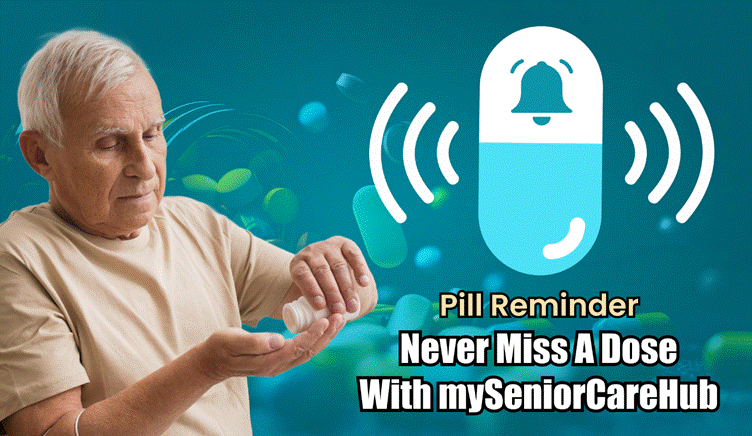
Simple Steps to Stay on Track –Medication Errors
| Steps | What to Do | Why It Helps |
| Use a pill reminder app | Use weekly boxes with day/time slots | Helps avoid missed or double doses |
| Set reminders | Use phone alarms or mySeniorCareHub app | Ensures medicines are taken on time |
| Keep a medication list | Note medicine names, doses, and schedules | Assists doctors and prevents confusion |
| Use one pharmacy | Get all prescriptions from a single source | Allows pharmacists to catch drug interactions |
| Ask questions | Talk to doctors or pharmacists if unsure | Improves understanding and adherence |
| Review medications regularly | Discuss all medicines with your doctor | Removes unnecessary or duplicate drugs |
| Store medicines properly | Keep in cool, dry places, away from sunlight | Preserves effectiveness and safety |
| Pair meds with daily routines | Take them during meals or brushing teeth | Makes remembering easier and automatic |
A Safer, Healthier Tomorrow Starts Today
Medication should heal—not harm. While the risks of errors are real, they are not insurmountable. With awareness, compassion, and the right tools, seniors can take control of their health journeys. Caregivers, too, can breathe easier knowing they have support systems like mySeniorCareHub—not just as a reminder tool, but as a partner in wellness.
Because every dose matters. And every life deserves to be lived with dignity, safety, and peace of mind.

